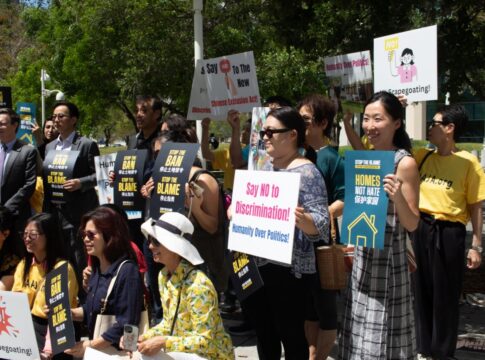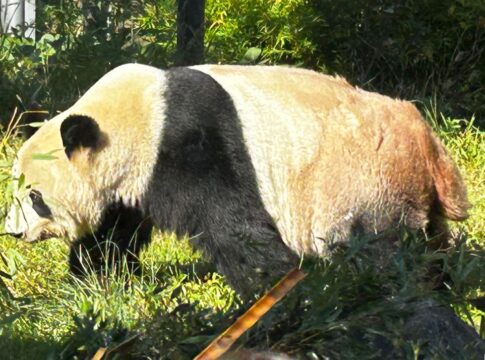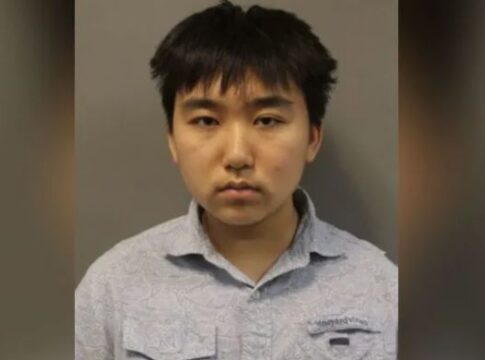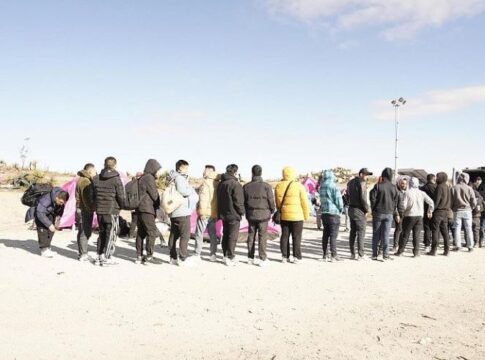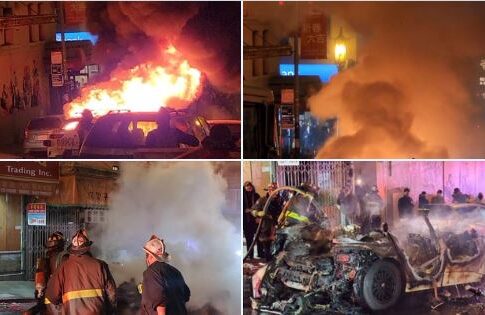By Louis Chan, AsAmNews National Correspondent
Cambodian Americans control an estimated 80 percent of the donut market in California thanks largely to one man- Ted Ngoy, otherwise known as The Donut King.
He built a donut empire and $20 million in wealth, but his fortune built on donuts would crumble and he would lose it all.
His story is told in Alice Gu’s documentary The Donut King, which makes it nationwide television debut Monday, May 24 on PBS on Independent Lens. It can also be seen on the PBS app or on PBS.org through June 22.
“He is symbolic of the American immigrant spirit,” Gu said to AsAmNews speaking about Ngoy. “It’s a refugee spirit. It’s this grit, and will to survive, and a will to make a better life for yourself and for your family. He’s symbolic of the American dream.“
LATEST STORIES
Ngoy came to the United States in 1975 as a refugee escaping the brutal Khmer Rouge regime. He received training from Winchell Donuts and within a year of coming to America, he opened Christy’s Donuts. By 1980, Christy’s would expand to 20 locations.
Along the way, he sponsored some 100 Cambodian refugees to come to the United States. Many of them launched their own donut shops due largely to the generosity of Ngoy.
The parents of 31-year-old Mayly Tao started Dks Donuts and Bakery in Santa Monica in 1981. She began working there at the age of 6, when she had to stand on a milk crate to reach over the counter. It’s a pattern seen at many immigrant businesses. Family provides cheap labor. Children work at these businesses too eliminating the need for child care which the families cannot often afford.
“These refugees came over and they didn’t have friends, or they didn’t have the income to hire people. So they had to work really hard themselves within these families,” explained Tao who knows Ngoy as Uncle Ted.
He is her great uncle and her grandma’s brother.
“Uncle Ted influenced me in ways that I didn’t even know,” Tao said to AsAmNews. “I understood that he had a strong sense of community, he had a strong sense of giving back. He opened up many donut shops for Cambodian refugees.”
West of the Mississippi, Gu said if you visit an independent donut shop, there’s an 80-90% chance its run by a Cambodian American family. One of America’s most iconic foods and most popular pastries is likely made by a Cambodian American.
Gu says the timing of the film’s national TV debut amidst a rise of anti-Asian hate couldn’t be more perfect.
“You know, ‘go back to your own country, you don’t belong here. You’re not American.’ The irony is not lost on me,” Gu said. “To me, there’s nothing more American and representative of American values than being able to come here. And I think that is more American than anything.”
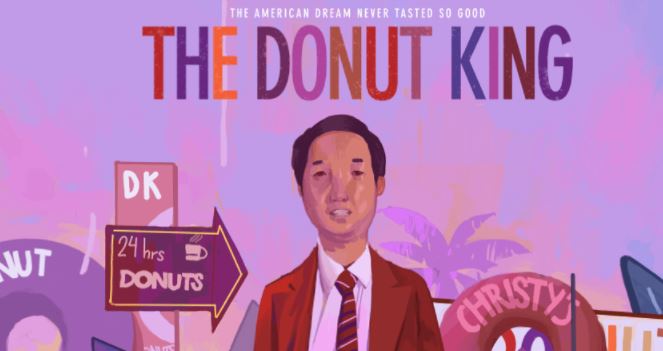
Gu says she never thought of her parents who fled communist China as refugees, but the definition of refugee “is a person who has been forced to leave their country in order to escape war, persecution, or natural disaster.”
She says that’s her parents experience even though they never referred to themselves as refugees.
“Although it (Ngoy’s story) wasn’t my family’s story. It was my family story. And, you know, I saw so many similarities, so many layers of it, and all the questions that I never asked my parents, I got to ask the donut King,” Gu said.
Ngoy’s story does not have a happy ending. I won’t give away that ending here, although the trailer hints at it.
Tao says it wasn’t easy to convince her great uncle to participate in the documentary. She said she worked hard to introduce Gu to all the key characters, including Ngoy.
“I really did have to, you know, convince him like, ‘hey, Uncle Ted, this is a great opportunity for us to tell our story, I hope and I kind of beg you to please, you know, participate in something like this.’
Her uncle had already returned to Cambodia where he has built a real estate business.
“I think it was a little bit difficult at first, especially for uncle Ted to come to America to film that part of the documentary, but I think he was definitely open to it and, and willing to share,” Tao said.
Although Ngoy’s empire came crashing down, in actuality, his story does have a happy ending. Tao herself is evidence of that. She is now known as The Donut Princess. She’s part of the next generation of donut entrepreneurs in the Cambodian American community.
She recently launched Donut Princess LA which is an online only business which delivers its signature product throughout Southern California and even out of state. She has helps run DKs Donuts and Bakery for her parents.
She says her new businesses name is definitely “an ode to Uncle Ted.” While many families no longer want their kids to work in the donut business, she is making a career out of it. Donut Princess LA is known for its donut bouquets.




“I think I’m really proud of my family for what they did here. And I’m proud of myself. I would just, you know, ask that people show a little bit more compassion and support for Asian American small businesses, she said.
Gu hopes that’s what people will take from the film.
“People said that they will never walk into a donut shop and look at the people the same way ever again and said, for that matter. I’ll never walk into another immigrant owned business again, and not think of it and look at it in a different way,” said Gu
AsAmNews has Asian America in its heart. We’re an all-volunteer effort of dedicated staff and interns. Check out our new Instagram account. Go to our Twitter feed and Facebook page for more content. Please consider interning, joining our staff, or submitting a story or making a contribution.



